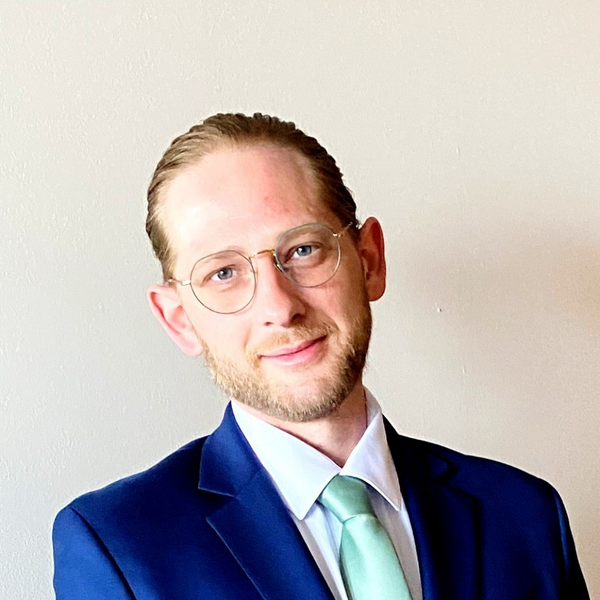
AE Seminar Speaker Aaron Berliner: Space Bioprocess Engineering for an Offworld Biomanufactory
- Event Type
- Seminar/Symposium
- Sponsor
- Aerospace Engineering
- Location
- CIF 4039
- Date
- Jan 22, 2025 4:00 - 5:00 pm
- Views
- 183
- Originating Calendar
- Aerospace Engineering Seminars
Abstract:
Inspired in part by the new measurements and imagery from the Perseverance mission, there is reinvigorated public interest in achieving a crewed mission to Mars in the 2030s. To realize such missions, we must solve multiple science and engineering challenges as described by NASA's Space Technology Grand Challenges for expanding human presence in space as they relate to Space Bioprocess Engineering (SBE). These challenges include advancing technologies to support the nutritional, medical, and incidental material requirements that will sustain astronauts against the harsh conditions of interplanetary transit and habitation on the surface of an inhospitable alien world. Advanced biotechnologies that support flexible biomanufacturing from in situ resources can provide a mass, power, and volume advantage compared to traditional physicochemical strategies. Biomanufacturing will also provide alternative routes to on-demand production of a sufficiently diverse set of chemistries that meet the unexpected needs of astronauts. This reduces the diversity and overall mass of goods required to be brought on each mission. However, critical bottlenecks remain that must be overcome to ensure Martian-based biomanufacturing will be practical and robust. We present a roadmap to address these bottlenecks by aligning the research, design, and testing necessary for deploying a biomanufactory during long-term missions in the 2040s. Our analysis suggests that the endeavor becomes far more efficient when bioprocess components are linked together into an integrated biomanufactory. The resultant cooperativity in the design provides direct mechanical linkage of processes, uses compatible organisms and media, and maximizes recycling and utility of byproducts. We contend that integrated SBE is a necessary field to develop alongside individual space technological efforts.The available literature often focuses on short-term exploration missions of ~30-day surface operations, instead of the more probable, longer-term missions spanning ~500 days of on-planet operations. A critical aspect of these longer duration missions is determining the food, medicine, and materials requirements that are necessary to support the targeted concept-of-operations. We formalize the mathematical framework for modeling a biomanufacturing system to develop the resources for sustaining a human exploration mission on the surface of Mars. We established mission goals, extended the Equivalent System Mass framework for a comparison of missions, developed the framework for modeling a Martian resource inventory in terms of supplies produced via in-situ processes and transported from Earth, and developed the framework required to sustain a human crew. Using this collection of frameworks, we implement and integrate process models spanning in situ solar power production through crop cultivation models for food consumption and pharmaceutical synthesis for astronauts. The proposed architecture provides a logistical roadmap and quantitative measures of efficacy for on-planet biomanufacturing in support of a manned Mars mission. Addressing the technical hurdles to support a late 2030s mission will require specific investment in our understanding of space biomanufacturing, and rigorous testing of increasingly space-like environments as they become available.
Bio:
Dr. Aaron J. Berliner is a visiting research associate in the Department of Radiation Oncology of Weill Cornell Medicine under Dr. Silvia Formenti and collaborating with Dr. Chris Mason to study the effects of space radiation on biological systems. Before this role, Dr. Berliner was a postdoctoral scholar at the University of California, Berkeley, where he also served as the inaugural lecturer in the university's Aerospace Engineering program. Additionally, he played a pivotal role as the lead coordinator of the NASA-funded Space Technology Research Institute (STRI) CUBES (Center for the Utilization of Biological Engineering in Space) for which he was bestowed with the 2023 NASA Agency Honor Group Award “for outstanding efforts that laid the foundation for space biomanufacturing via development of an array of novel enabling technologies for synthetic biology and biotechnology.” He earned his Ph.D. in Bioengineering under Dr. Adam Arkin and his M.S. in Nuclear Engineering under Dr. Lee Bernstein at UC Berkeley in 2022. His academic journey began at Boston University, where he studied biomedical engineering and synthetic and systems biology. Dr. Berliner’s career started at NASA Ames Research Center, where he worked with Dr. John Hogan and Dr. John Cumbers on projects in 3D printing, bioelectrochemistry, and astrobiology. In 2013, he joined the Life Sciences group at Autodesk Research in San Francisco, contributing to efforts in bioprinting, software engineering, synthetic virology, and DNA origami. Driven by his passion for space exploration, he returned to academia as an NSF Graduate Fellow, helping to establish CUBES. Dr. Berliner contributed to the emerging field of Space Bioprocess Engineering (SBE), which applies bioengineering principles to develop biotechnologies for long-term space missions. His contributions include extending life support cost metrics and conducting technoeconomic analyses of Lunar and Martian missions. He has focused on designing biomanufactory-driven reference mission architectures for human exploration of Mars, providing space agencies with parametric designs that address mission requirements and operational considerations. These efforts encompass advanced life support systems, biological and chemical manufacturing, and in situ resource utilization (ISRU), helping to pave the way for sustainable human presence in space.